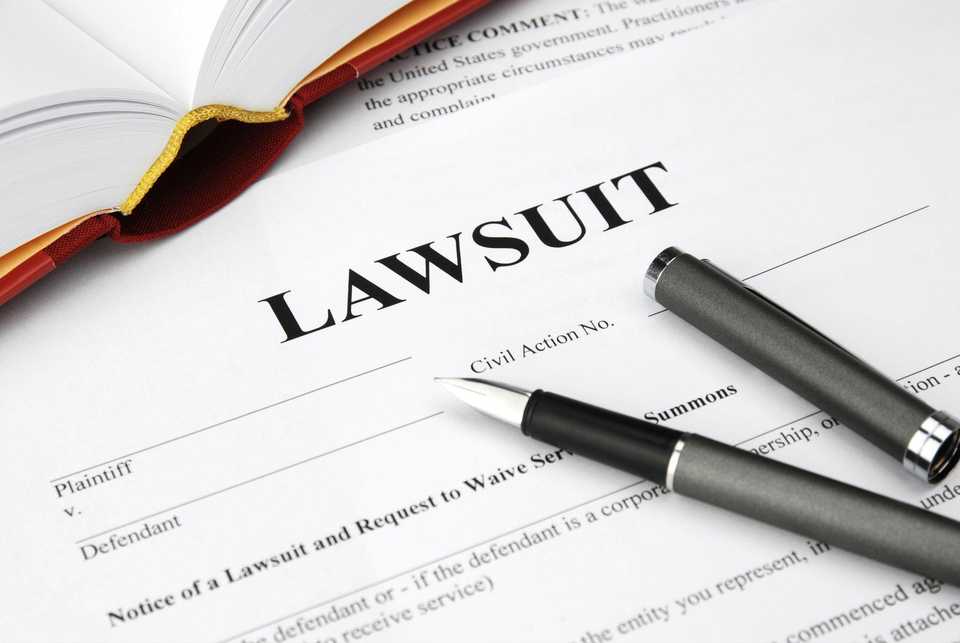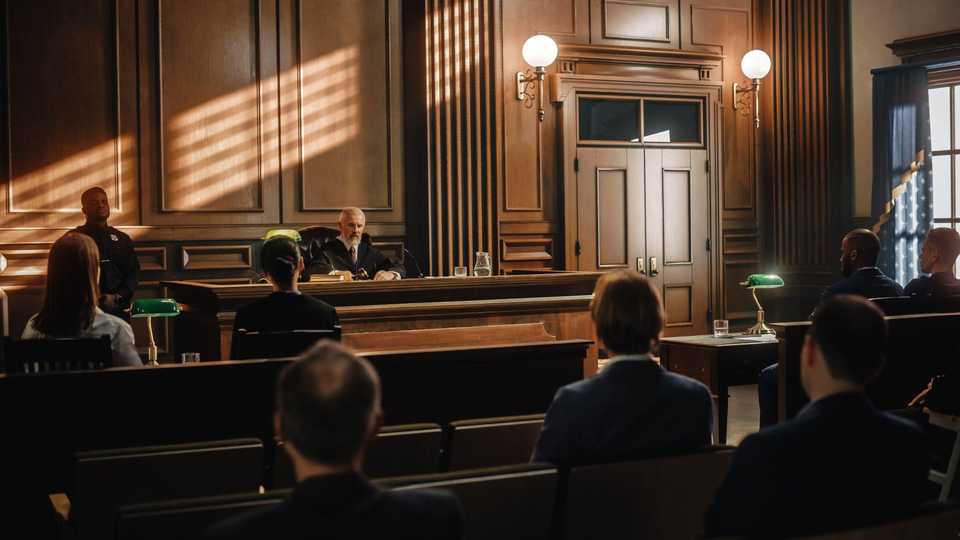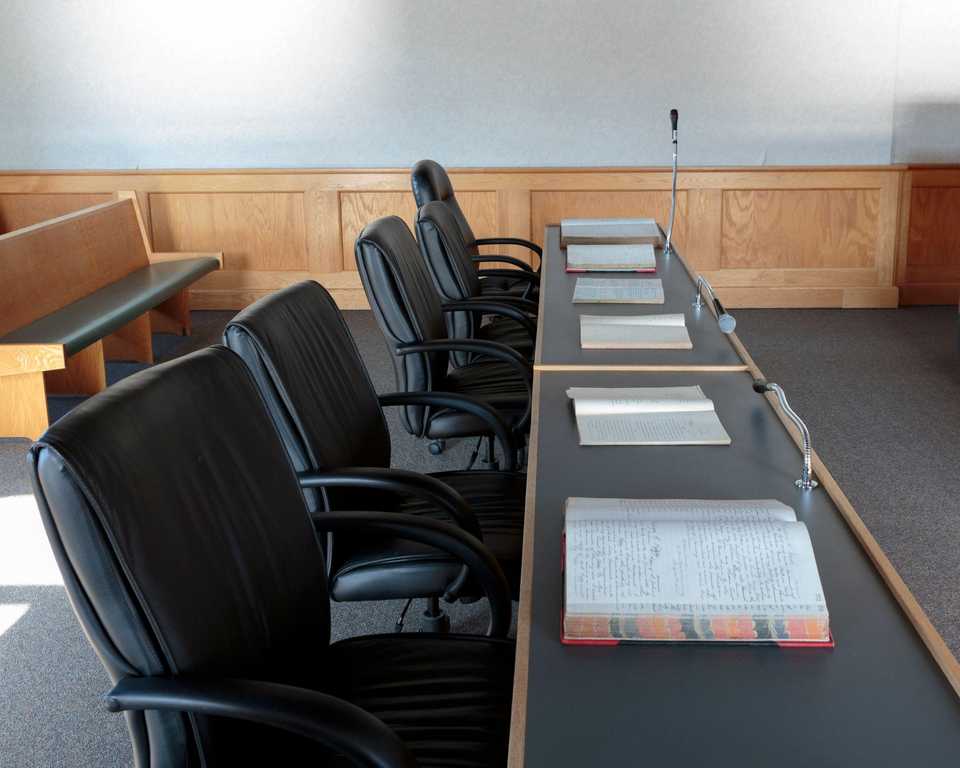Facing a lawsuit in Ontario can be an intimidating and overwhelming experience, particularly for those who lack a thorough understanding of the legal system.
However, by working closely with knowledgeable legal counsel and following a strategic approach, you can navigate the complexities of the litigation process and protect your company’s interests.

Whether the suit stems from a contractual dispute, an employment issue, or any number of other legal grounds, the steps you take immediately after finding out are very important.
In the following sections, JuriGo explains the essential steps to take when faced with a lawsuit!
First: Understand the lawsuit against your company!
Statement of Claim
A lawsuit begins with the receipt of a Statement of Claim, a document which formally outlines the allegations against your company and the relief or damages being sought.
Claims can typically range from breach of contract to employment disputes, intellectual property infringements, and beyond, with each type carrying its own implications and required responses.
Timelines to be aware of
Ontario law stipulates strict deadlines for responding—typically, you have 20 days to file a Statement of Defence. Missing this deadline can have significant consequences, including a default judgment against your company, essentially granting the plaintiff what they have asked for without your input.
Consulting a lawyer
Upon being served with a lawsuit, seeking legal counsel is the best way to move forward. It’s important to note that the right lawyer can mean the difference between a favourable outcome and a costly, damaging resolution.
Responding to the lawsuit
Upon understanding the claim against your company and consulting with legal counsel, the next step is to formally respond to the lawsuit, which is done through a Statement of Defence.
What is a Statement of Defence?
The Statement of Defence is your company's opportunity to respond to each allegation made in the Statement of Claim.
This document should be well-written and clearly outline your counterarguments and any legal defences your company wishes to assert. It should address every point made in the claim, even if that means simply stating that you lack the knowledge to admit or deny the allegation.
In drafting the Statement of Defence, your legal team will rely heavily on the information you provide, including any relevant documents, contracts, correspondence, and a detailed account of the events in question. This document presents an opportunity to introduce facts and legal theories that can form the basis of your defence.

In some cases, your company may have claims against the plaintiff or another party related to the dispute. These can be included in your response as counterclaims, which must be of the same subject matter as the plaintiff's claim.
The discovery process
After the exchange of pleadings (the Statement of Claim and Statement of Defence), the discovery process begins.
This part is intended for both parties to understand the evidence that will be presented at trial. It includes the exchange of relevant documents and may also involve examinations for discovery, where lawyers for each side have the opportunity to question the other party under oath.
For the discovery process, your company will need to gather and provide all documents related to the dispute. While this may be time-consuming, it’s important to be thorough, as failing to disclose a relevant document can negatively impact your case.
When to consider a settlement?
As the litigation process unfolds, settlement will likely be a topic of discussion, as it offers a way to resolve the dispute without the time, expense, and uncertainty of a trial.
In many cases, it can be in both parties' best interests to reach an agreement that avoids further litigation. Here’s all you need to know about the settlement process:
Settlement can occur at any stage of the litigation process, from before a Statement of Defence is filed to the steps leading up to a trial.
It can be initiated by either party and often involves negotiations conducted by the lawyers representing each side.
Settlement discussions can also be part of a formal mediation process, where a neutral third party helps facilitate an agreement.
Other options: mediation and arbitration
Mediation and arbitration are forms of alternative dispute resolution that can offer more expedient and cost-effective alternatives to trial.
Mediation involves negotiation facilitated by a neutral mediator, aiming to help the parties reach a voluntary agreement.

Arbitration, on the other hand, involves a hearing before one or more arbitrators who make a binding decision on the dispute.
Both options could offer potential solutions for companies looking to resolve disputes in a more controlled and potentially less adversarial environment than a court trial.
The choice between mediation, arbitration, and continuing toward trial depends on various factors, including the specifics of the case, the parties’ willingness to compromise, and other strategic considerations.
How should you prepare for trial?
If a settlement is not reached, the case may proceed to trial. The process includes the following steps:
- Your company will need to prepare all evidence, including documents, emails, contracts, and any other material relevant to the case
- Gather any witnesses who can testify on your company’s behalf.
- Review all facts, understand the legal issues at stake, and anticipate potential questions from the opposing counsel.
The trial process explained!
The trial process in Ontario involves presenting your case before a judge (and sometimes, but very rarely, a jury). The trial starts with each side presenting its opening statements, followed by the plaintiff presenting their evidence and witnesses.
The defendant, your company in this case, then presents its evidence and witnesses. Following the presentation of evidence, closing arguments are made, and the judge (or jury) will make a decision.
The trial process can be lengthy and complex, which is why it is always recommended to have a legal expert who can guide you through each step.
How can a lawyer help when your company is being sued?
Litigation is inherently uncertain, but a lawyer can make a big difference in your case by helping you understand the process and navigating the legal system more effectively.
A legal expert will also work with your company to maintain a proactive stance and consider all available avenues for resolution, including settlement, which can help avoid the risks of litigation.

Ultimately, the goal is to resolve the dispute in a manner that protects your company's interests, reputation, and financial well-being. While litigation may seem daunting, the right legal support can significantly help you manage this process.
Don't let the stress of litigation distract you from running your business. Let JuriGo help you find the right legal support today!
To get started, simply fill out the form below, and JuriGo will begin the process of connecting you with a lawyer who specializes in commercial litigation. Our services are free and without obligations!